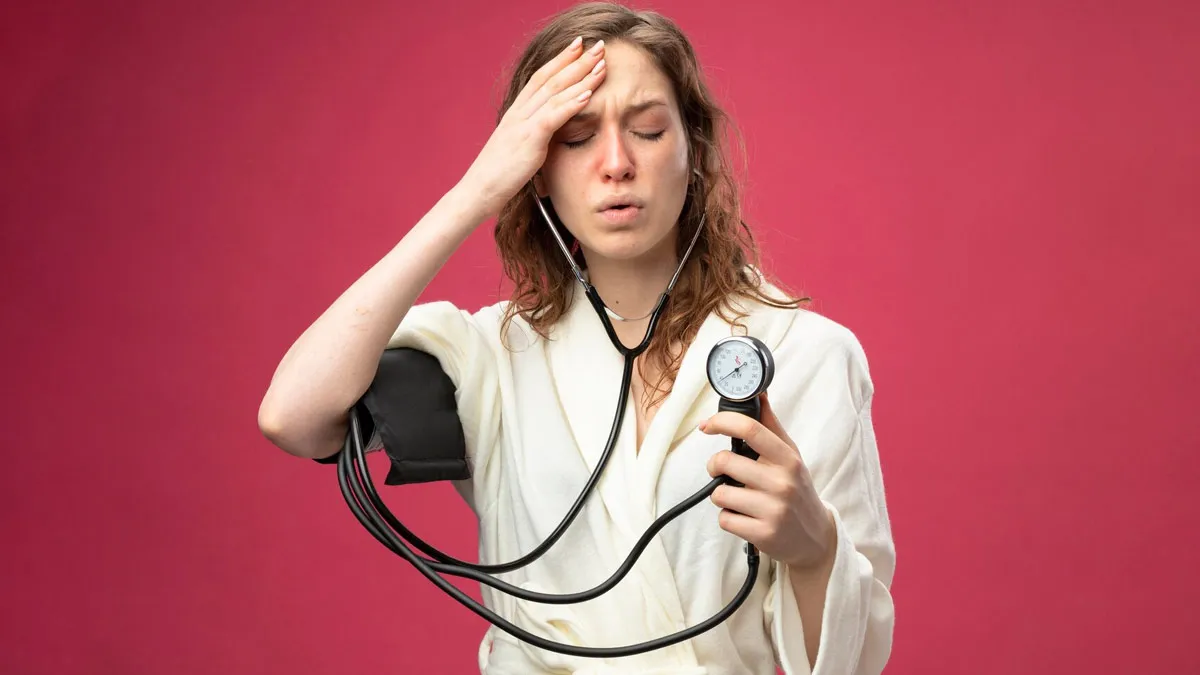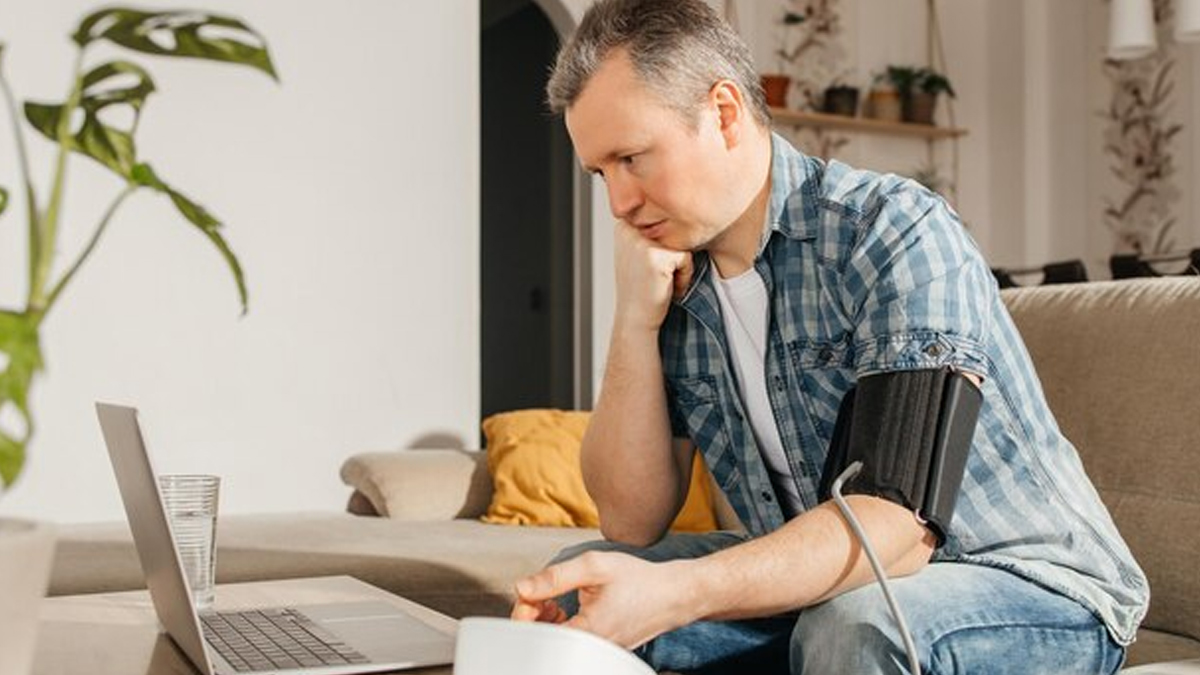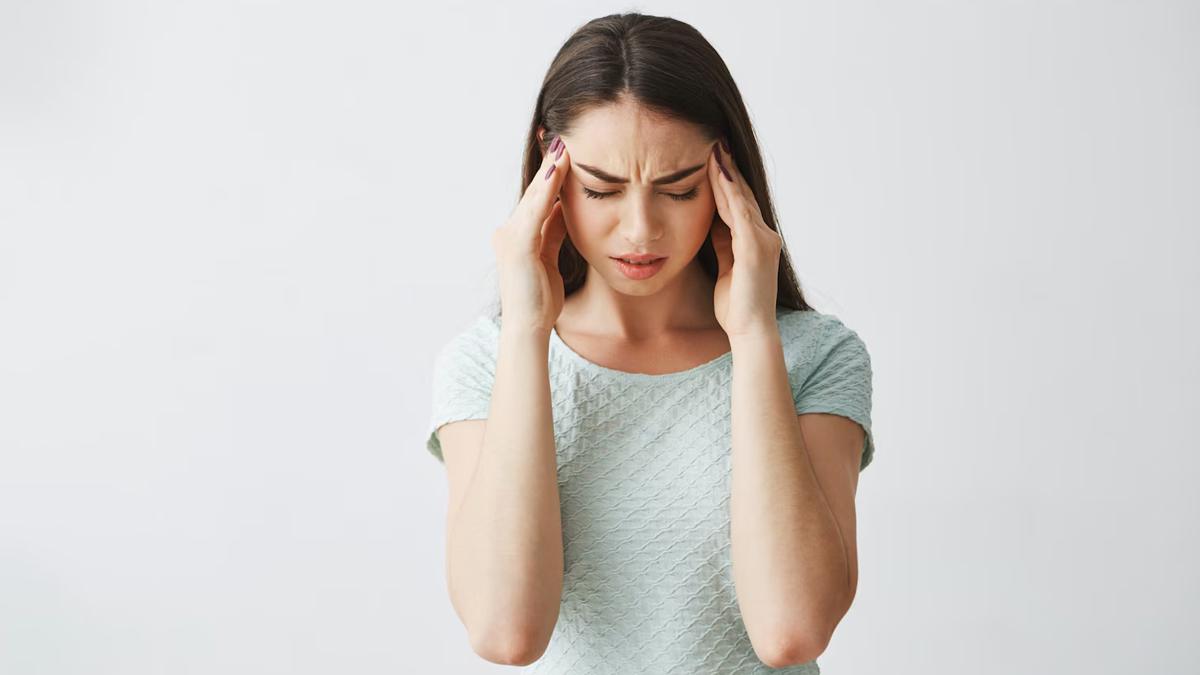
For years, high blood pressure, or hypertension, was seen as a condition that crept up with age. But that notion no longer holds. Across India’s urban centres, more young adults in their 20s and 30s are being diagnosed with high blood pressure, often unexpectedly, during general check-ups or while investigating unrelated issues.
Table of Content:-
Many of them don’t fit the typical risk profile. They are not overweight, don’t smoke, and often have no family history of heart disease. What they do have in common is a fast-paced digital lifestyle, marked by screen-heavy routines, irregular sleep, and near-constant online engagement.
The change isn’t just being talked about, it’s being seen in clinics every day. More young adults are showing early signs of high blood pressure. While junk food, stress, and a lack of movement still matter, two newer habits are quietly adding to the strain: endless screen time and sleep that’s no longer deep or regular. We spoke to Dr Sarat CV Talluri, Senior Consultant- Internal Medicine, Arete Hospitals, Hyderabad, who shared insights on the same.
The Digital Connection to Hypertension

“Smartphones, laptops, and televisions have become integral to daily life. While they offer convenience and connectivity, their overuse is quietly reshaping physical and mental health. The human body was not designed to stay in one posture for hours, especially in front of glowing screens. But beyond posture-related fatigue, there’s a more serious impact on blood pressure regulation,” said Dr Talluri.
Late night screen time keeps the body quietly alert, even if the mind feels drained. Heart rate increases, blood vessels tighten, and the body misses the cues to wind down. When this becomes a nightly routine, whether through scrolling, streaming, or unfinished work, it slowly unsettles the body’s built-in rhythm, leaving it less able to reset and restore itself.
“Blue light emitted from screens also plays a role. It suppresses melatonin, the hormone that helps the body prepare for sleep. This delay in the body’s wind-down process leads to late bedtimes, poor quality of sleep, and shorter sleep duration, all of which are now recognised as independent risk factors for hypertension,” added Dr Talluri.
These days, sleep quietly takes the hit. A quick scroll in bed, one more episode, or late-night emails become habits that unsettle the body’s built-in rhythm, throwing off the balance it depends on to reset, recover, and truly rest.
Rest isn’t just about feeling refreshed; it’s when the body does its quiet repair work.” The hypertension level eases down at night while you are sleeping. But when the rest is too brief, too light, or broken in bits, that natural dip never happens. The body stays alert in the background, even when it’s dark outside. This hidden pressure builds every night, raising the risk of hypertension, heart strain, stroke, and kidney fatigue,” explained Dr Talluri.
Sleep deprivation also raises cortisol levels, the body’s primary stress hormone. Chronically elevated cortisol contributes to vascular inflammation and insulin resistance, both of which further increase cardiovascular risk.
Also Read: Masked Hypertension: Why Young Professionals Are Walking Around With Dangerously High BP
Young Adults and the 'Invisible' Risk

“One of the biggest concerns is that young adults rarely associate themselves with hypertension. The absence of symptoms often gives a false sense of reassurance. Unlike chest pain or palpitations, high blood pressure doesn’t make its presence felt in the early stages. However, if left unchecked, it silently damages the blood vessels, heart, brain, and kidneys over the years,” said Dr Talluri.
Since high blood pressure quietly creeps in, it often goes unnoticed until something goes wrong. Among younger adults, it can trigger early heart problems, frequent headaches, blurred vision, or waves of anxiety, symptoms that are often brushed off or blamed on everyday stress.
Also Read: Vision Loss May Be A Lesser-Known Sign Of High Blood Pressure: How To Connect The Dots
Taking Charge: Small Shifts, Big Impact
Digital habits are hard to change overnight, but small, consistent steps can significantly lower the risk of developing hypertension.
- Screen discipline: Creating boundaries around screen usage, especially 1-2 hours before bedtime, can help restore healthier sleep patterns. Avoiding phones in bed and setting screen curfews are effective starting points.
- Prioritising sleep: The heart depends on steady, uninterrupted rest, ideally 7-8 hours each night. Cutting out caffeine after dusk and keeping screens away from the bed are small shifts that can gently restore the body’s sleep rhythm.
- Movement breaks: Sitting in front of a screen for hours slows down circulation. Taking short movement breaks every 45–60 minutes helps regulate blood flow and lowers tension in the muscles and mind.
- Regular monitoring: Young adults, especially those with high screen time or poor sleep, should not wait for symptoms. Checking blood pressure periodically, even at a pharmacy kiosk or during an annual health check, can help catch early changes.
Message From The Expert
Dr Talluri concluded, “Hypertension in the digital age isn’t driven by genetics alone. Lifestyle is now the dominant force, including screen time, sleep, diet, stress, and activity levels. The good news is that many of these risk factors are modifiable.”
“Recognising the early impact of digital overuse on heart health is the first step. With timely awareness and simple changes, it’s possible not just to control blood pressure, but to prevent its rise altogether. In a world where digital demands are only growing, protecting the heart will depend on how well balance is restored,” he added.
[Disclaimer: This article contains information provided by an expert and is for informational purposes only. Hence, we advise you to consult your professional if you are dealing with any health issue to avoid complications.]
Also watch this video
Read Next
India’s Hidden Heart Crisis: Doctor Talks About How Misinterpretation of Reports Can Cause Harm
How we keep this article up to date:
We work with experts and keep a close eye on the latest in health and wellness. Whenever there is a new research or helpful information, we update our articles with accurate and useful advice.
Current Version